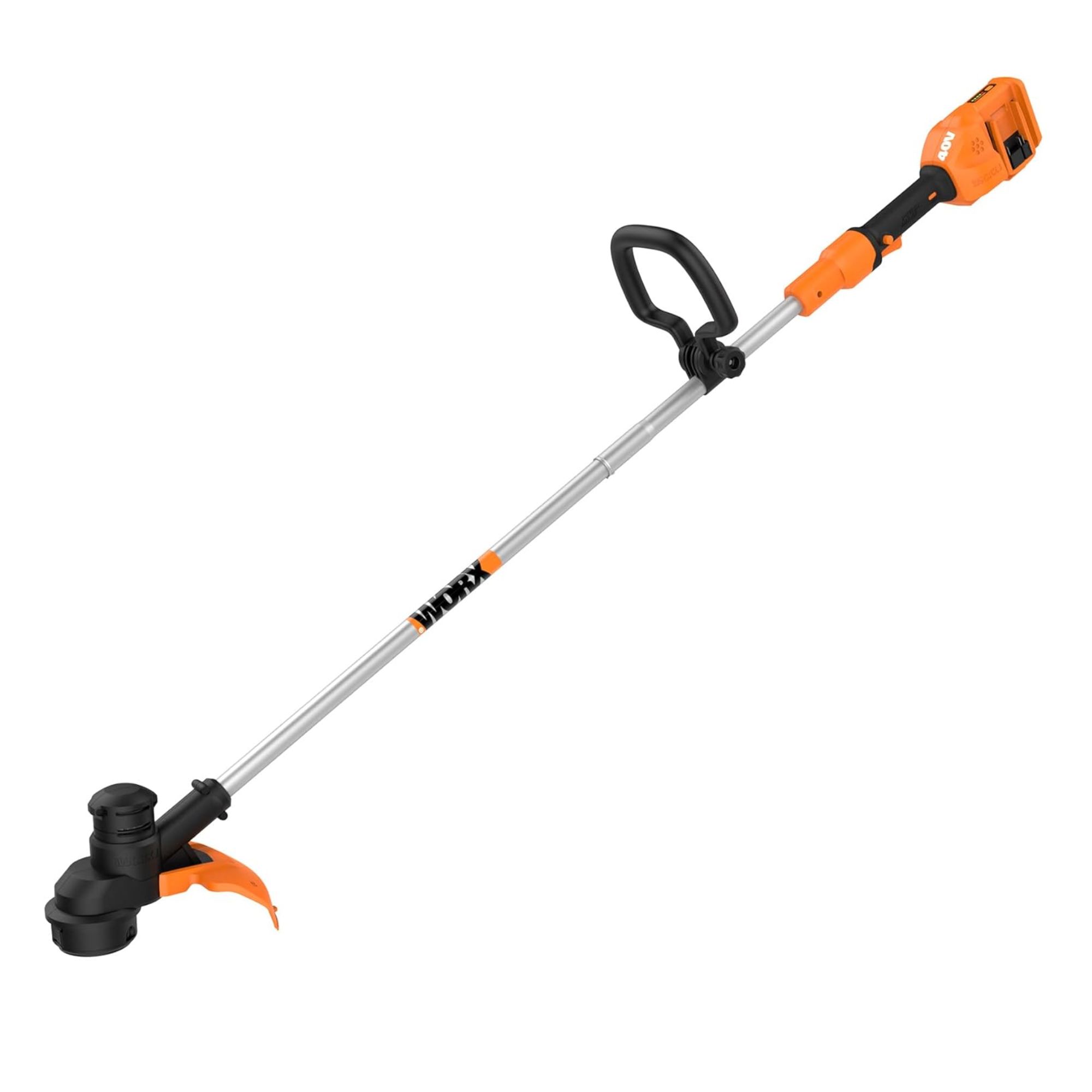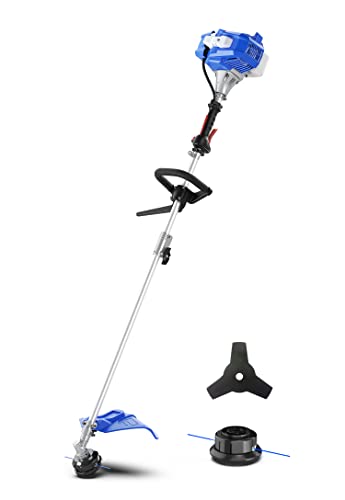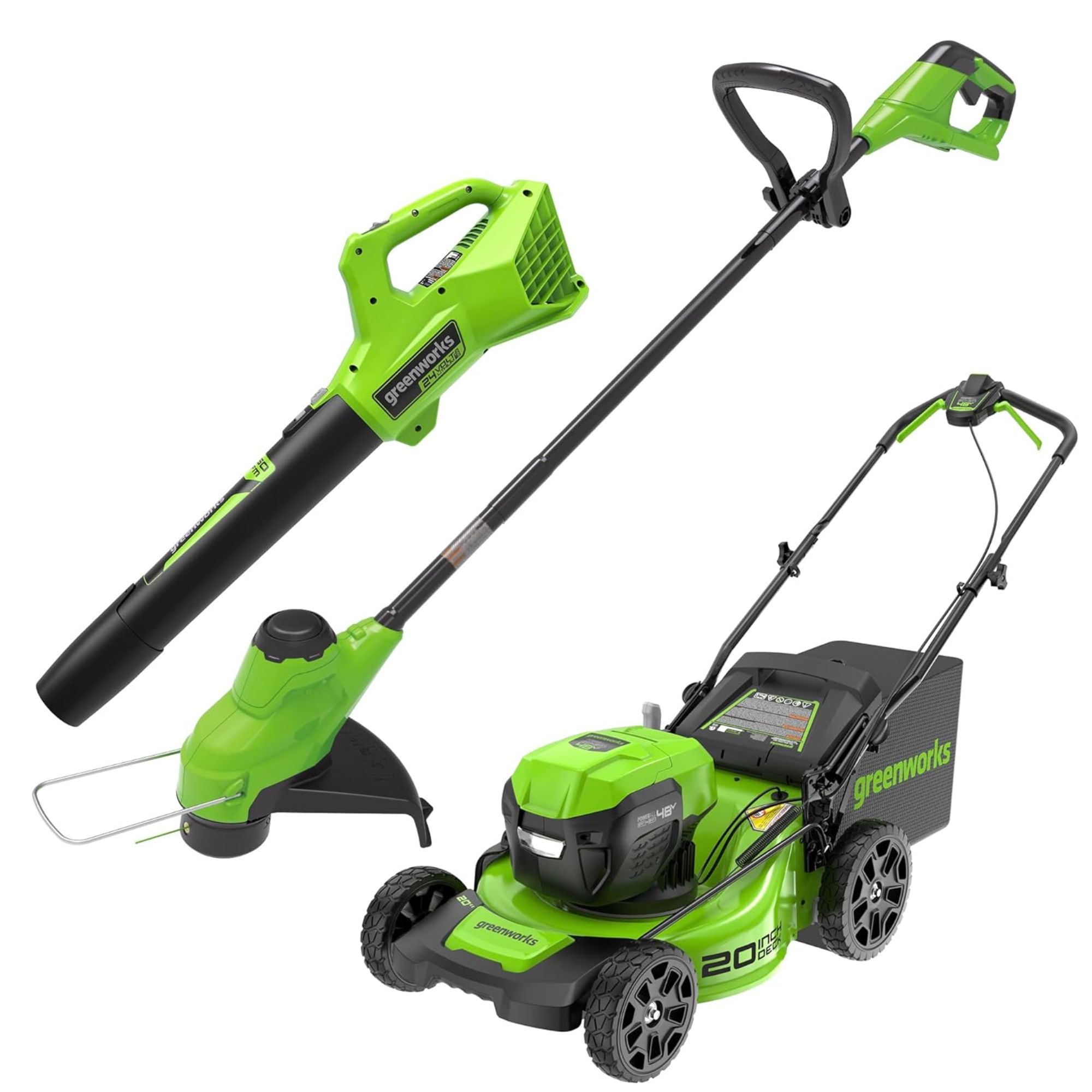I've tested lawn trimmers for years – here is all you need to know about how to buy one that's effective and easy to use
Read these 5 top tips from a trimmer tester before you buy

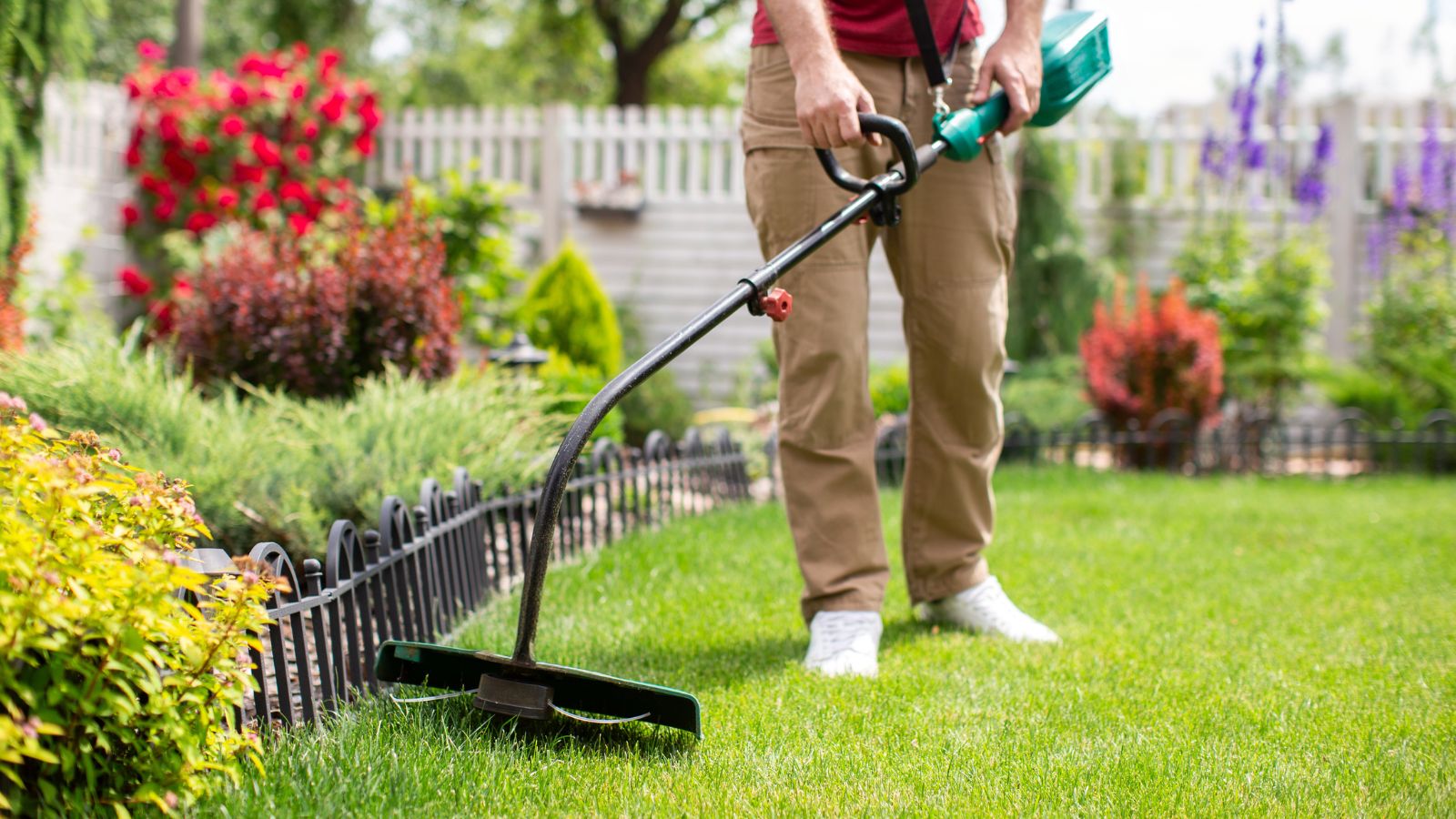
Trimmers are invaluable if you're a lawn perfectionist. They get rid of unruly tufts of grass around trees and against walls, making for a picture-perfect lawn.
However, a bad trimmer can leave your lawn looking patchy and uneven. If you don't know what you're looking for, you can end up with an uncomfortable, badly balanced yard tool.
I've tested lots of trimmers over the years so I know exactly what makes for a good lawn trimmer. Learning how to buy a good lawn trimmer can save you hundreds of dollars and hours of labor. This is all you need to know about finding a good lawn trimmer.
1. Choose line or blades
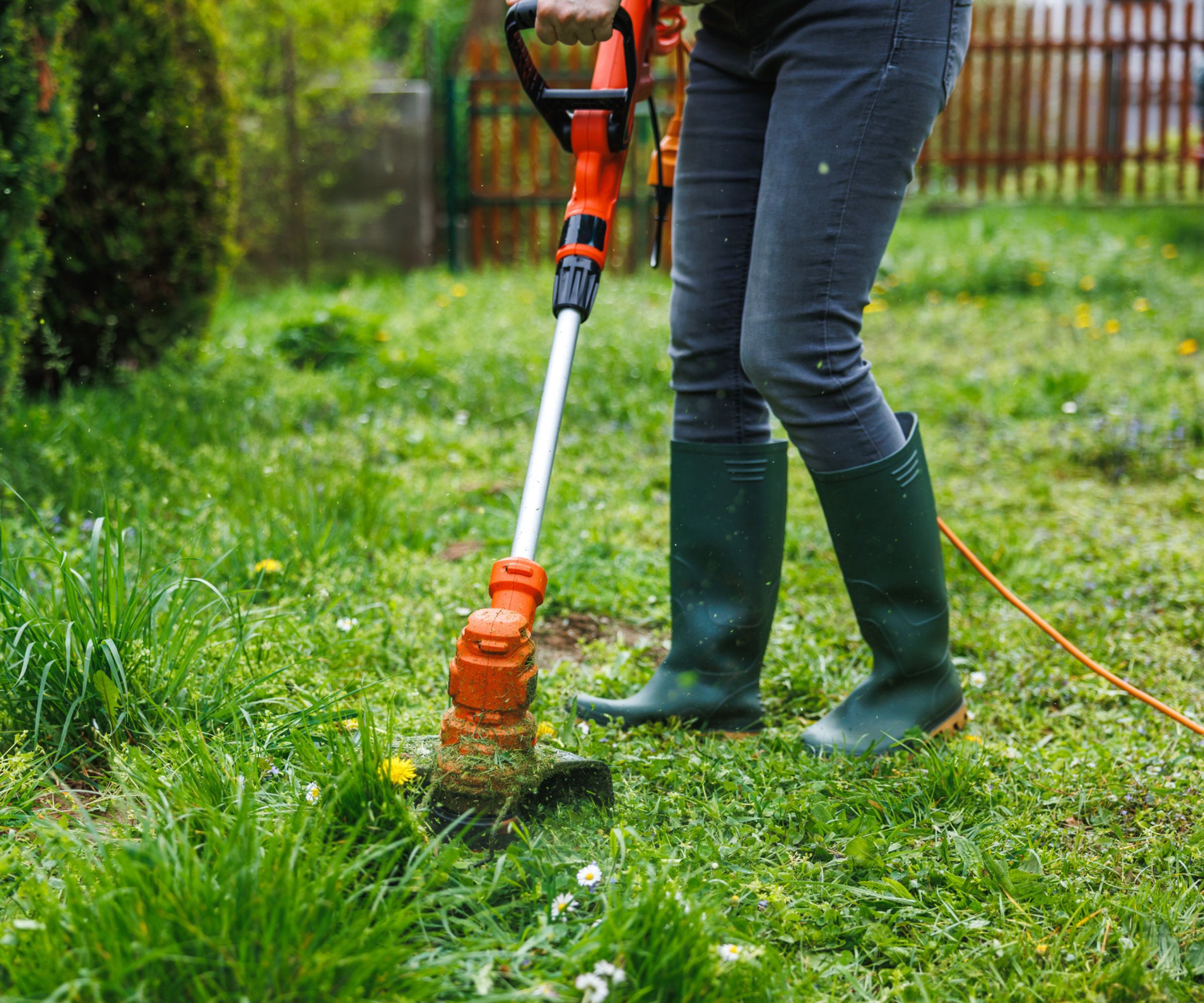
The most important choice when buying a new lawn trimmer is the choice between blades and line. There are two ways that a lawn trimmer cuts grass. The first is just like a lawn mower. A blade lawn trimmer spins little plastic - and in some models, metal - blades to cut the grass.
The other, more common solution is line. These trimmers cut the grass by spinning little lines of nylon cord to cut the grass.
The two methods have different benefits and drawbacks. Blade trimmers tend to give better cuts, and they can also handle tougher plant matter than line trimmers.
However, line trimmers are more resilient than blade trimmers. If a line trimmer hits a rock, it wraps harmless around it and bounces off. If a blade trimmer hits a rock, it will chip, and you need to buy and fit a replacement blade.
Design expertise in your inbox – from inspiring decorating ideas and beautiful celebrity homes to practical gardening advice and shopping round-ups.
The choice between the two is up to you. If you have rocky soil, I'd go for a line trimmer. If you have a lot of tufty grass around trees and weeds to whack, I'd go for a blade trimmer.
2. If you choose line, get an auto feed
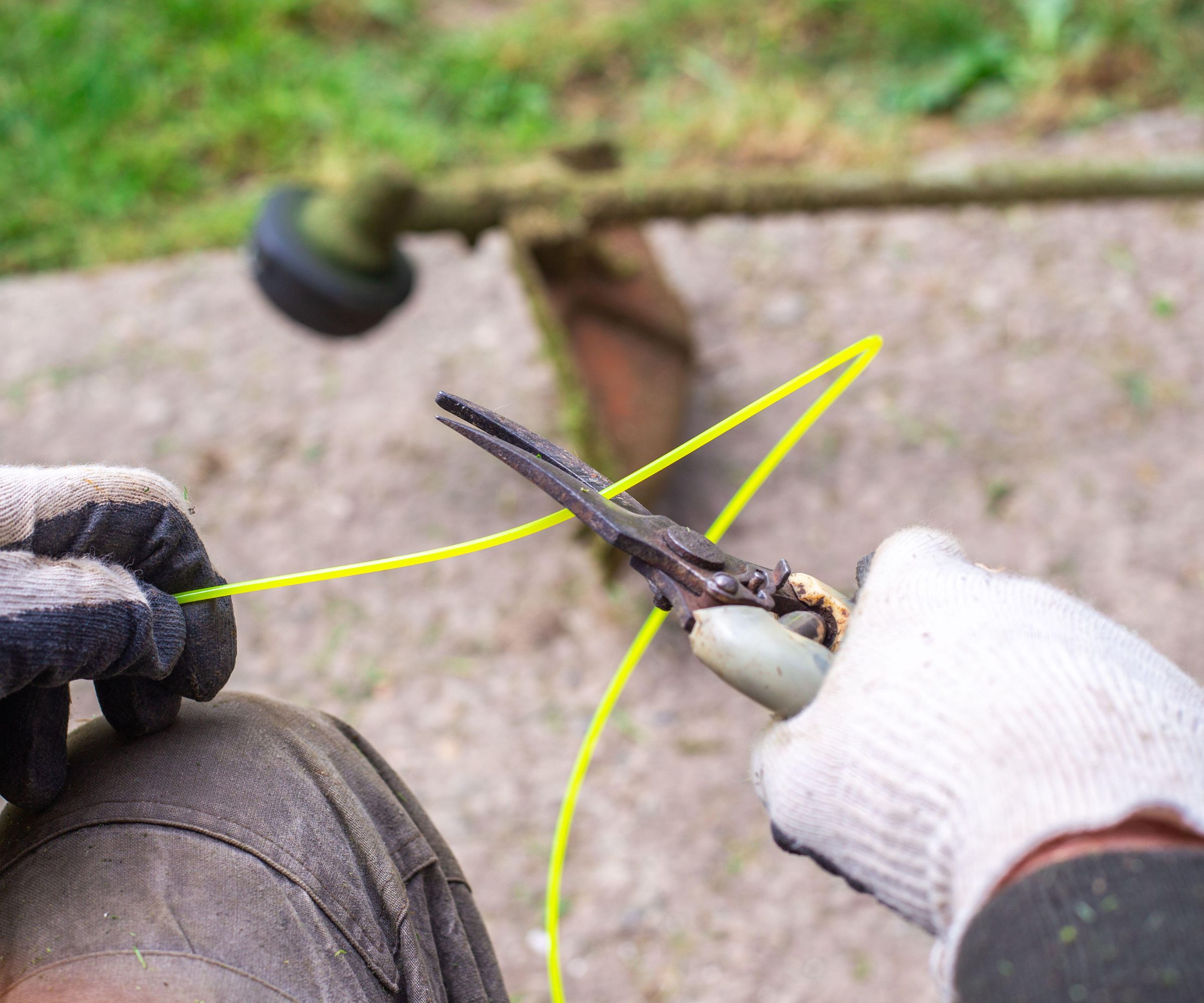
If you choose a line lawn trimmer, make sure you get a bump or auto feed. These are usually included as standard but it isn't the case for all lawn trimmers.
Line trimmers use a spool of wire, with the two ends hanging out of the head of the trimmer. These heads gradually wear down over time as they cut and brush against hard bark, fences, and walls. A bump feed makes it much easier to keep the lengths of wire topped up. You bump the bottom of the trimmer head on the ground as you trim, and a spring unspools a little extra line.
An auto feed does this automatically, feeding out a little extra line as and when you need it. The benefit here is that you don't need to bump the line on the soil as you work. It's easy to scuff the bump, and if your trimmer is still turning, it's easy to cut an uneven line in whatever you're cutting.
Whatever you do, make sure your trimmer can feed out line. Old trimmers without these mechanisms are frustrating to use because you have to pull out the line yourself, which is a pointless job when you can buy a trimmer that does it for you.
3. Consider going cordless
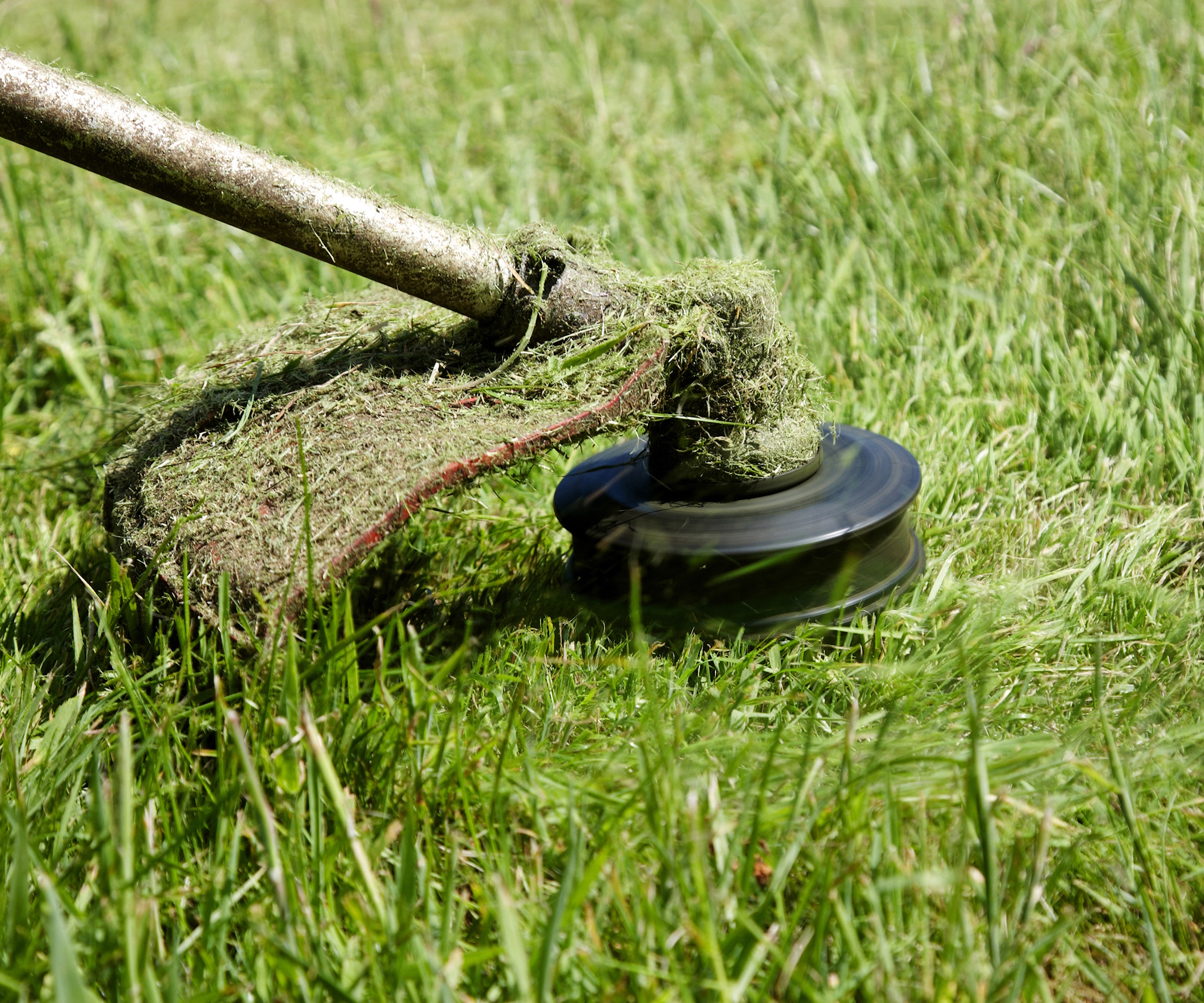
Many people are mistrustful of cordless equipment. There's the hassle of keeping the batteries charged up, a reduced runtime compared to gas, and a cordless trimmer is simply less powerful than a gas engine.
But if there's anywhere in the yard to consider going cordless, it's the lawn trimmer.
Cordless trimmers don't need that much power to cut through gas, so there's negligible difference between a good cordless trimmer and a good gas trimmer.
Cordless lawn trimmers are much lighter than gas trimmers, which is invaluable if you have acres to edge or lots of trees to tidy. Wearing a backpack gas engine for a couple of hours can cause a lot of discomfort, and you can avoid all that with a cordless trimmer that only weighs a couple of pounds.
On top of that, there's all the fumes, and the inevitable maintenance of a gas engine, which has many parts which can go wrong.
Cordless trimmers also have an advantage over corded trimmers in that you can go all over the yard without being tied to a power cord, and there's no danger of cutting through a power cord.
4. Consider ergonomics
Whatever, you do, make sure you buy a lawn trimmer with a shoulder strap. While lawn trimmers are some of the lightest yard tools, it can be uncomfortable to hold them in position for hours at a time, and a shoulder strap helps take all of the tension.
Look out for comfortable handles. There are two main types - bike handles and loop handles. If you have a lot of brush to cut, you need bike handles. You find these on large, old-school gas trimmers, and they allow you to make big, scything cuts across lots of ground at once.
However, these aren't as precise as loop handles, which you tend to find on inexpensive lawn trimmers. While these make it easier to cut precise, level lines, they make it hard to process lots of material at once. If the lawn trimmer has a loop handle, make sure that you can adjust the handle, as this helps you tackle lots of different trimming tasks.
5. Always buy an edger
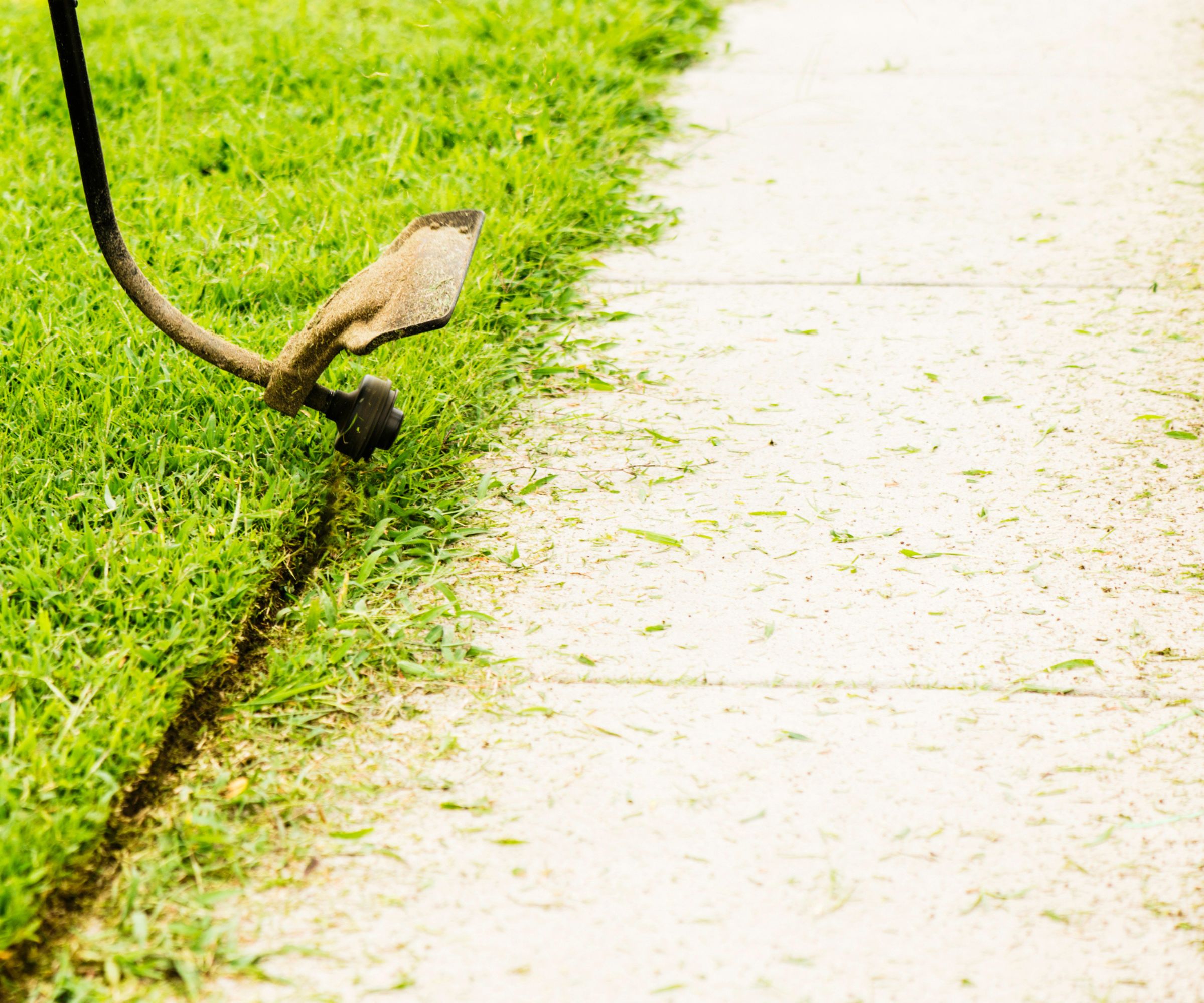
Above all, if you can, look for a trimmer that can convert into an edger. A good example is this WORX WG163 GT at Walmart. The best trimmers have heads that rotate 90° so that you can run them along the edge of a lawn where it meets a path or flowerbed.
This makes edging lawns incredibly easy, saving the labor of shuffling along the edge with lawn scissors. It also stops you from buying a separate edging appliance. It's a bonus function, and you usually don't have to pay much more to find it.
The best models also have wheels included. This means you can get a much straighter line than edging freehand.
Lawn trimmers aren't the only yard equipment that can be tricky to buy. Learning how to buy gardening tools and lawnmowers can also save you a small fortune and help you find tools that last for years - if not decades.

As a gardens and lifestyle contributor, Alex makes sure readers find the right information to help them make the best purchase. Alex got his start in reviewing at the iconic Good Housekeeping Institute, testing a wide range of household products and appliances. He then moved to BBC Gardeners’ World Magazine, assessing gardening tools, machinery, and wildlife products.
